All Stories
-
 Earth
EarthEvery six years, Earth spins slightly faster and then slower
Changes in day length linked to workings of Earth's core.
-
 Planetary Science
Planetary ScienceGas, not planets, may be source of rings around stars
Interactions between gas and dust may form elliptical patterns.
-
 Life
LifeBacterial molecules may prevent inflammatory bowel disease
Common compounds produced by gut microbes quench colitis in mice.
-
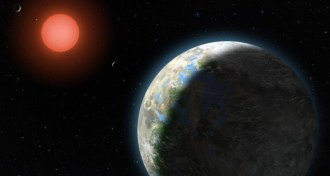 Astronomy
AstronomyClouds may keep exoplanets cool
Even when close to their stars, other worlds could harbor liquid water.
By Erin Wayman -
 Space
SpaceInterstellar chemistry makes use of quantum shortcut
Reactions in the frigid cold of space are sped by a quirk of physics, researchers propose.
By Andrew Grant -

-
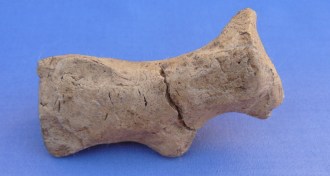 Anthropology
AnthropologyAgriculture’s roots spread east to Iran
Dig supports prolonged development of domesticated crops at ancient sites across the Fertile Crescent.
By Bruce Bower -
 Health & Medicine
Health & MedicinePeople may have evolved to fight cholera
People in Bangladesh have genetic variations that might defend against the disease.
By Nathan Seppa -
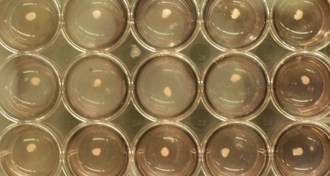 Life
LifeLab-grown liver raises hopes but draws criticism
Though human cells spontaneously group into rudimentary organs, some scientists say work is very preliminary.
By Meghan Rosen -
 Life
LifeDeadly flu virus flourishes in lung cells
H7N9 influenza's clinging ability in humans and birds raises concerns about increased transmission between species.
-
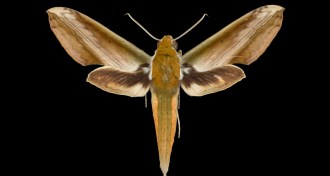 Animals
AnimalsHawkmoths squeak their genitals at threatening bats
Sounds of an approaching predator inspire ultrasonic rasping in insect prey.
By Susan Milius -
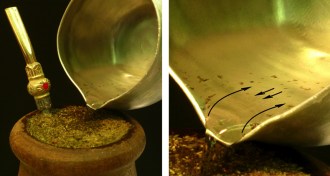 Physics
PhysicsParticles defy gravity, float upstream
Inspired by tea leaves’ reverse route into a kettle, physicists demonstrate that water’s surface tension allows unexpected movement.
By Andrew Grant